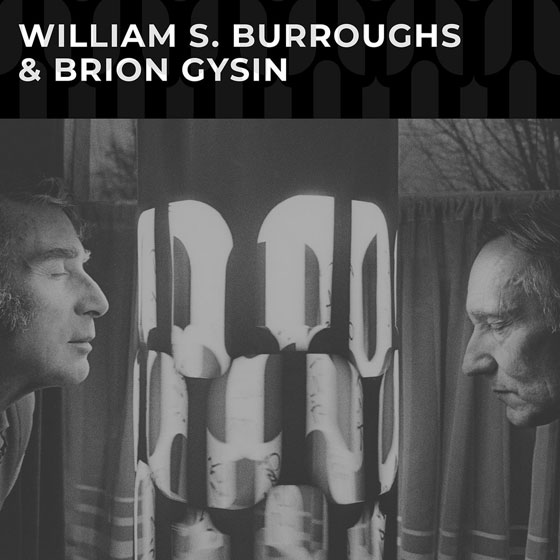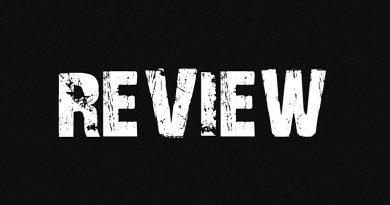Review: William S. Burroughs & Brion Gysin
Like a popular referendum on any oppressive government, the Beat Generation of the 1950s too was a renunciation of the linear thinking, closed minded establishment of the time, a literary movement predicated on liberation in all forms and preservation of personal freedom. Unlike the self serving motivations of today’s vapid purveyors of ‘individual rights’ at the expense of public health, beat authors sought to (actually) expand human consciousness through anti materialism, spiritual and sexual exploration, and the general rejection of societal norms. Breaking free from the rigidity of mainstream culture was, in effect, the only way to avoid becoming a nameless automaton under the direct control of an overarching, overly powerful government. Ironically, this ‘anti-culture’ MO proved to be one of the most influential developments on American culture in the last seventy years.

Spearheaded by notable core authors Herbert Huncke, Allen Ginsburg, Lucien Carr, Jack Kerouac, and of particular relevance here, William S. Burroughs, the beat movement’s popularity grew exponentially as the disenfranchised and underserved artistic communities now had a ‘voice’. Racial inequality, socioeconomic discrimination, and the unapologetic apathy for victims marred by addiction and disability were topics of biting criticism through poetry, spoken word and visual art. What gave Burroughs a unique credibility was his life history colored by poverty, heroin addiction and homosexuality. More interesting was his fascination and near obsession with the occult and avid practicing of chaos magick, greatly influenced by contemporary and close friend Brion Gysin.
This backdrops the cultural and historical importance of UK independent label Cold Spring’s recent LP release of rare spoken word recordings from Burroughs and Gysin. Taken from original tapes in the British Library collection, the album contains the complete 1982 recording of Burroughs reading live in Liverpool, a selection of Gysin performances and additional home recordings made by them both in Paris in 1970. Brimming with sardonic wit and satirical commentary, Burroughs gives frank accounts of the life trials which often plague the less fortunate. Anecdotes and short stories are brought to life with explicit detail, many times through confrontation with his own personal demons or through comedic portrayals of mindless bourgeoisie.
‘…I am not an addict, I am THE addict…’ is the first phrase you hear from Burroughs, haunting in its monotone detachment and sobering in its directness and assuredness. It’s a statement on the relative anonymity of society’s drug addicted homeless and the judgement they face in the eyes of the public. A negative cycle of shame and lowered self-esteem ensues where the ‘junkie’ indeed becomes no more than a dried slab of paint on the wall, ignored and easily forgotten, their humanity as victims of mental illness never considered or validated. A self proclaimed crusader for the average degenerate (then known as simply anything or anyone who veered from the straight and narrow), Burroughs targeted the establishment due to its baseless promotion of superiority and overt classism.
Excerpts from his Liverpool performance spoke of the ‘Johnson’ (taken from the foreword of the then unpublished 1983 novel The Place Of Dead Roads) as a turn of the century term for ‘good bums and thieves’. This archetype of ‘hero outcast’, the humble person who never turns away from an opportunity to help but never trips over his own self righteousness, is often pitted against an egotistical, self serving society who prides itself on feigned outrage over injustices they either don’t really care about or don’t have the introspection to truly understand.
This LP gives us all a short glimpse of Burroughs and Gysin’s contribution to that historical vanguard…
This theme carries over in later descriptions of the ‘do-rights’ in a searing critique of health care inequality and the sense of entitlement common among those with more money or more status. The ‘do-rights’ had better rooms, better drugs, and better ‘access’ to care due to their incessant ability to brown nose their way to a better life through sycophancy and conformity for the mere sake of personal advancement. This version of humanity is America at its mediocre best, embodied by the guy who ‘falls all over himself to light the boss’s cigarette’.
Repeated social inequities can eventually breed enough disdain to influence activism to the point of flipping the script where the very ‘evil’ fought against is mirrored in a motivation for revenge. Burroughs could be considered a literary activist in his perpetual subversion of US popular culture. His personal hardships, while providing fuel for literary satire, also made him a victim of persistent disempowerment at the hands of the establishment. The ongoing oppression (existential and real) gives his art a vendetta like feel, as each story told to the Liverpool crowd was another opportunity for a metaphorical ‘fuck you’ to an otherwise dim-witted society. This contempt even spilled over into everyday life to the point of using chaos magick cursing rituals (the ‘playback’ method) to target a mundane coffee shop for crossing him.
Burroughs and Gysin shared a fascination with the occult and the concepts of pre-recorded futures and the absence of coincidences. Gysin’s contribution to the LP consists mostly of a series of statements using the ‘cut-up technique’, a form of literary collage that takes a phrase and rearranges the words to unveil new meaning. On the surface, it seems rudimentary and repetitive, but a closer examination, as with other forms of divination (stichomancy, bibliomancy), can yield specific insights beyond chance.
The magical universe emphasizes individual or collective ‘will’ as the driving force for existence. In his description of the ‘cut-up technique’, Gysin explains that ‘…words don’t belong to anyone… they have a vitality of their own… you or I have the ability to gush them into action…’ At the heart of this quote is the key point that willpower is a magician and artist’s greatest asset. It follows that the ultimate power to affect sociopolitical change begins with the forward thinking idea and belief that it can happen. This LP gives us all a short glimpse of Burroughs and Gysin’s contribution to that historical vanguard.
Label: Cold Spring Records
Scribed by: Jeremy Moore


